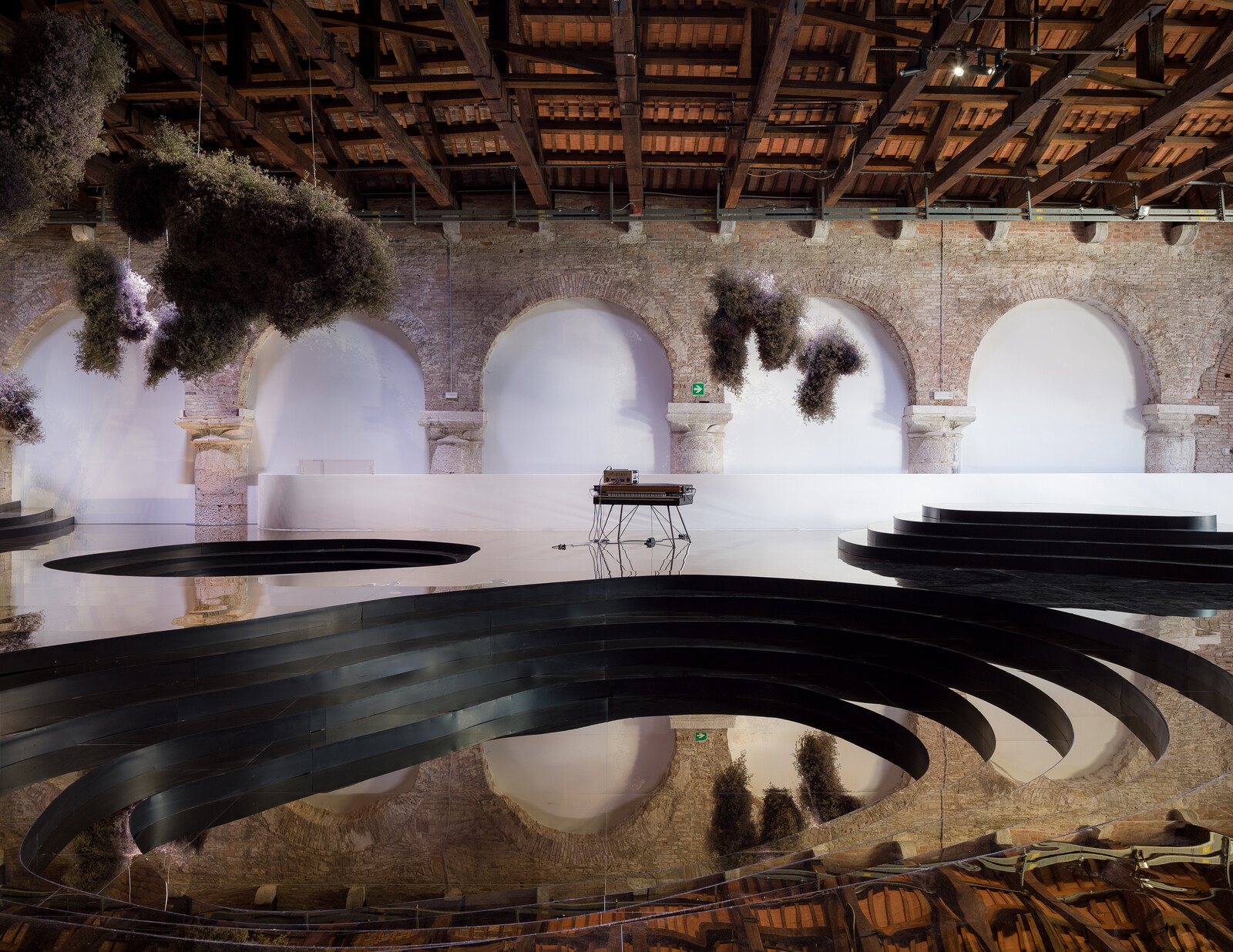April 23–November 27, 2022
Quarta Tesa
Arsenale, Castello
30122 Venice Italy
Italy
Curated by Space Caviar and Sheida Ghomashchi.
The Uzbekistan National Pavilion at the 59th International Venice Biennale will present a reflection on the seminal work of Muhammad ibn Mūsā al-Khwārizmī, a scientist and polymath born and raised in the city of Khiva (present-day Uzbekistan). Al-Khwārizmī’s treatise On the Calculation with Hindu Numerals (825 CE) was responsible for the introduction of Hindu-Arabic numerals to Europe, and it was the Latin transliteration of al-Khwārizmī’s name to Algorizmi that gave us the modern word algorithm.
Dixit Algorizmi: The Garden of Knowledge sets out to question the origin myths and narratives surrounding modern technologies, using the lens of contemporary artistic practices to explore their forgotten roots and overlooked resonances with distant places, times, and cultures. The pavilion engages divergent interpretations of technology as a medium, acknowledging the depth and complexity of its history to be explored through an extensive public program.
Al-Khwārizmī’s most significant research took place at the House of Wisdom in Baghdad. The House of Wisdom was a place of gathering and exchange and is widely assumed to have been centered around formal gardens planned in the Islamic tradition. During his tenure at House of Wisdom, al-Khwārizmī was instrumental in countless scientific activities that involved a wide-ranging group of scientists and intellectuals. The design of the Uzbekistan Pavilion will reference this tradition in its spatial arrangement, recasting the Islamic tradition of the garden as a place of gathering and exchange as a technologically augmented space of research, reflection, and experimentation. The gatherings and exchanges within the Garden of Knowledge will be structured in a public program scheduled for the duration of the Biennale.
Public program: April 19–November 27
Throughout the course of the seven months of the Biennale, artists, scholars, historians, scientists, writers, and philosophers will be invited to address the possibility of alternative modernities in an extensive public program.




